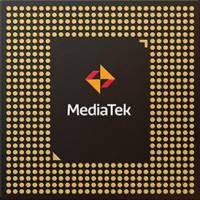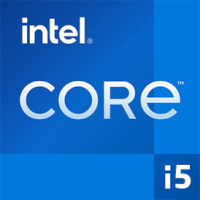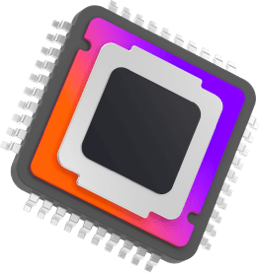| MediaTek MT6732 | Intel Core i5-4300U | |
| Max TDP | 15 W | |
| NA | Consumo di energia al giorno (kWh) | NA |
| NA | Costo di esercizio al giorno | NA |
| NA | Consumo di energia all'anno (kWh) | NA |
| NA | Costo di esercizio all'anno | NA |
MediaTek MT6732 vs Intel Core i5-4300U

MediaTek MT6732 funziona con 453 core e 4 thread della CPU. Funziona su -- base tutti i core mentre il TDP è impostato su .Il processore è collegato al socket della CPU N/A Questa versione include -- di cache L3 su un chip, supporta i 1 per supportare la LPDDR3-800 e presenta PCIe Gen . Tjunction mantiene al di sotto dei -- gradi C. In particolare, Cortex-A53 Architecture è migliorata con la 28 nm e supporta None . Il prodotto è stato lanciato il Q3/2014

Intel Core i5-4300U funziona con 2 core e 4 thread della CPU. Funziona su 2.90 GHz base 2.90 GHz tutti i core mentre il TDP è impostato su 15 W .Il processore è collegato al socket della CPU BGA 1168 Questa versione include 3.00 MB di cache L3 su un chip, supporta i 2 per supportare la DDR3L-1600 SO-DIMM e presenta 2.0 PCIe Gen 12 . Tjunction mantiene al di sotto dei -- gradi C. In particolare, Haswell U Architecture è migliorata con la 22 nm e supporta VT-x, VT-x EPT, VT-d . Il prodotto è stato lanciato il Q3/2013
Confronta dettaglio
| 1.50 GHz | Frequenza | 1.90 GHz |
| 453 | Core | 2 |
| -- | Turbo (1 nucleo) | 2.90 GHz |
| Turbo (tutti i core) | 2.90 GHz | |
| Hyperthreading | Yes |
|
| Overclock | No |
|
| normal | Architettura principale | normal |
| ARM Mali-T760 MP2 | GPU | Intel HD Graphics 4400 |
| 0.50 GHz | GPU (Turbo) | 1.10 GHz |
| 28 nm | Tecnologia | 22 nm |
| 0.50 GHz | GPU (Turbo) | 1.10 GHz |
| Versione DirectX | 11.1 | |
| 2 | Max. viene visualizzato | 3 |
| LPDDR3-800 | Memoria | DDR3L-1600 SO-DIMM |
| 1 | Canali di memoria | 2 |
| Memoria massima | ||
| ECC | No |
|
| -- | L2 Cache | -- |
| -- | L3 Cache | 3.00 MB |
| Versione PCIe | 2.0 | |
| PCIe lanes | 12 | |
| 28 nm | Tecnologia | 22 nm |
| N/A | Presa | BGA 1168 |
| TDP | 15 W | |
| None | Virtualizzazione | VT-x, VT-x EPT, VT-d |
| Q3/2014 | Data di rilascio | Q3/2013 |
Cinebench R20 (Single-Core)
Cinebench R20 è il successore di Cinebench R15 ed è basato anche su Cinema 4 Suite. Cinema 4 è un software utilizzato in tutto il mondo per creare moduli 3D. Il test single-core utilizza solo un core della CPU, la quantità di core o l'abilità di hyperthreading non conta.
Cinebench R20 (Multi-Core)
Cinebench R20 è il successore di Cinebench R15 ed è basato anche su Cinema 4 Suite. Cinema 4 è un software utilizzato in tutto il mondo per creare moduli 3D. Il test multi-core coinvolge tutti i core della CPU e offre un grande vantaggio dell'hyperthreading.
Cinebench R15 (Single-Core)
Cinebench R15 è il successore di Cinebench 11.5 ed è basato anche su Cinema 4 Suite. Cinema 4 è un software utilizzato in tutto il mondo per creare moduli 3D. Il test single-core utilizza solo un core della CPU, la quantità di core o l'abilità di hyperthreading non conta.
Cinebench R15 (Multi-Core)
Cinebench R15 è il successore di Cinebench 11.5 ed è basato anche su Cinema 4 Suite. Cinema 4 è un software utilizzato in tutto il mondo per creare moduli 3D. Il test multi-core coinvolge tutti i core della CPU e offre un grande vantaggio dell'hyperthreading.
Geekbench 5, 64bit (Single-Core)
Geekbench 5 è un benchmark multipiattaforma che utilizza pesantemente la memoria di sistema. Una memoria veloce spingerà molto il risultato. Il test single-core utilizza solo un core della CPU, la quantità di core o l'abilità di hyperthreading non conta.
Geekbench 5, 64bit (Multi-Core)
Geekbench 5 è un benchmark multipiattaforma che utilizza pesantemente la memoria di sistema. Una memoria veloce spingerà molto il risultato. Il test multi-core coinvolge tutti i core della CPU e offre un grande vantaggio dell'hyperthreading.
iGPU - FP32 Performance (Single-precision GFLOPS)
Le prestazioni di calcolo teoriche dell'unità grafica interna del processore con semplice precisione (32 bit) in GFLOPS. GFLOPS indica il numero di miliardi di operazioni in virgola mobile che l'iGPU può eseguire al secondo.
Geekbench 3, 64bit (Single-Core)
Geekbench 3 è un benchmark multipiattaforma che utilizza pesantemente la memoria di sistema. Una memoria veloce spingerà molto il risultato. Il test single-core utilizza solo un core della CPU, la quantità di core o l'abilità di hyperthreading non conta.
Geekbench 3, 64bit (Multi-Core)
Geekbench 3 è un benchmark multipiattaforma che utilizza pesantemente la memoria di sistema. Una memoria veloce spingerà molto il risultato. Il test multi-core coinvolge tutti i core della CPU e offre un grande vantaggio dell'hyperthreading.
Cinebench R11.5, 64bit (Single-Core)
Cinebench 11.5 è basato su Cinema 4D Suite, un software popolare per generare moduli e altre cose in 3D. Il test single-core utilizza solo un core della CPU, la quantità di core o l'abilità di hyperthreading non conta.
Cinebench R11.5, 64bit (Multi-Core)
Cinebench 11.5 è basato su Cinema 4D Suite, un software popolare per generare moduli e altre cose in 3D. Il test multi-core coinvolge tutti i core della CPU e offre un grande vantaggio dell'hyperthreading.
Cinebench R11.5, 64bit (iGPU, OpenGL)
Cinebench 11.5 è basato su Cinema 4D Suite, un software popolare per generare moduli e altre cose in 3D. Il test iGPU utilizza l'unità grafica interna della CPU per eseguire i comandi OpenGL.
Estimated results for PassMark CPU Mark
Alcune delle CPU elencate di seguito sono state confrontate con CPU-Comparison. Tuttavia, la maggior parte delle CPU non è stata testata ei risultati sono stati stimati dalla formula proprietaria segreta di un confronto tra CPU. In quanto tali, non riflettono accuratamente i valori effettivi del contrassegno CPU Passmark e non sono approvati da PassMark Software Pty Ltd.

Stima dell'utilizzo elettrico


